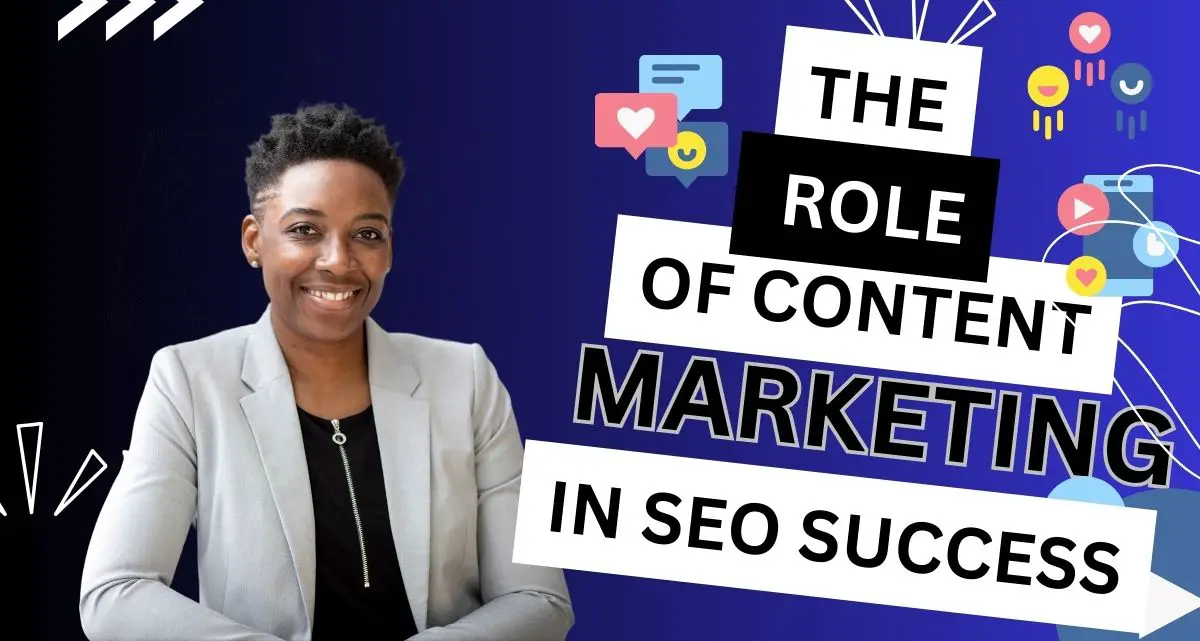Content is King in SEO
Content marketing and SEO go hand in hand. You can’t rank without quality content, and content alone won’t succeed without SEO. Search engines prioritise valuable, informative, and well-optimised content, making content marketing a crucial component of SEO success.
At Afrimasterweb, we understand that businesses must implement content-driven SEO strategies to attract, engage, and convert their audience. In this guide, we’ll explore how content marketing impacts SEO and provide actionable insights to help you create high-performing content that ranks and converts.
{imdex}
1. What is Content Marketing in SEO?
Content marketing is the strategic process of creating and distributing valuable, relevant, and consistent content to attract and retain an audience. In SEO, content marketing helps drive organic traffic, build authority, and improve search engine rankings.
How Content Marketing Boosts SEO
- Increases Organic Visibility – Quality content ranks better on search engines, driving traffic.
- Improves Keyword Optimisation – Helps integrate high-ranking keywords naturally.
- Generates Backlinks – Valuable content attracts authoritative backlinks, enhancing SEO.
- Enhances User Experience (UX) – Engaging content increases time on site and reduces bounce rates.
- Encourages Social Sharing – Increases brand exposure and referral traffic.
2. Key Types of SEO-Optimised Content
2.1 Blog Posts & Articles
- The foundation of content marketing and SEO.
- Optimised with keywords, internal links, and valuable insights.
- Covers trending topics and user queries.
2.2 Pillar Pages & Topic Clusters
- Pillar pages cover broad topics with in-depth insights.
- Topic clusters support pillar content by addressing subtopics.
- This structure improves internal linking and search rankings.
2.3 Video Content
- YouTube is the second-largest search engine after Google.
- Optimised video descriptions, captions, and transcriptions improve SEO.
- Embedding videos on web pages enhances engagement and dwell time.
2.4 Infographics & Visual Content
- Visually appealing, shareable content boosts engagement.
- Infographics often attract backlinks, improving domain authority.
2.5 Case Studies & Whitepapers
- Establish authority and credibility.
- Well-optimised, data-driven content attracts niche audiences.
Also read Mastering SEO: A Beginner’s Guide
3. How to Optimise Content for SEO
Creating content is just the beginning—optimisation is key. Follow these best practices to ensure your content ranks high on search engines.
3.1 Keyword Research & Placement
- Identify high-volume, low-competition keywords relevant to your topic.
- Use keywords naturally in titles, headings, and meta descriptions.
- Incorporate long-tail keywords to match search intent.
3.2 On-Page SEO Best Practices
- Optimise Title Tags & Meta Descriptions – Include target keywords.
- Use Header Tags (H1, H2, H3, etc.) – Enhance content structure.
- Internal Linking – Connect related articles to improve site navigation.
- Optimise Images with Alt Text – Helps search engines understand visuals.
- Improve Readability – Short paragraphs, bullet points, and engaging subheadings.
3.3 Content Freshness & Updates
- Regularly update old content to maintain rankings.
- Add new insights, statistics, and internal links to newer posts.
also read How to Write High-Ranking SEO Content
4. Content Promotion & Distribution for SEO
Creating great content is not enough—promotion and distribution enhance visibility.
4.1 Social Media Promotion
- Share content on LinkedIn, Twitter, Facebook, and Instagram.
- Engage with audiences through comments and discussions.
4.2 Email Marketing & Newsletters
- Send valuable content to subscribers.
- Include links to newly published blog posts.
4.3 Guest Blogging & Backlinks
- Contribute guest posts to industry-relevant sites.
- Earn high-quality backlinks to improve SEO authority.
4.4 Community Engagement & Forums
- Answer questions on Quora, Reddit, and niche forums.
- Link back to relevant content when appropriate.
also read Top SEO Tools to Skyrocket Your Rankings
5. Measuring Content Marketing Success
Tracking performance is essential for optimising future content.
Key SEO Metrics to Monitor
- Organic Traffic – Number of visitors from search engines.
- Keyword Rankings – Positions of target keywords in SERPs.
- Bounce Rate – Percentage of visitors leaving after viewing one page.
- Backlinks Earned – Number of quality backlinks gained.
- Time on Page & Engagement – Measures user interest and retention.
Use tools like Google Analytics, Google Search Console, Ahrefs, and SEMrush to monitor content performance.
Conclusion: Content Marketing is the Heart of SEO
SEO and content marketing are inseparable. A strategic content marketing approach helps websites rank higher, attract quality traffic, and convert visitors into customers. By consistently producing valuable, optimised content and distributing it effectively, businesses can dominate search rankings.
Now it’s your turn! Drop a comment below, share this post, and let’s discuss how content marketing can fuel your SEO success. Need expert guidance? Contact Afrimasterweb Agency today for tailored SEO solutions!







